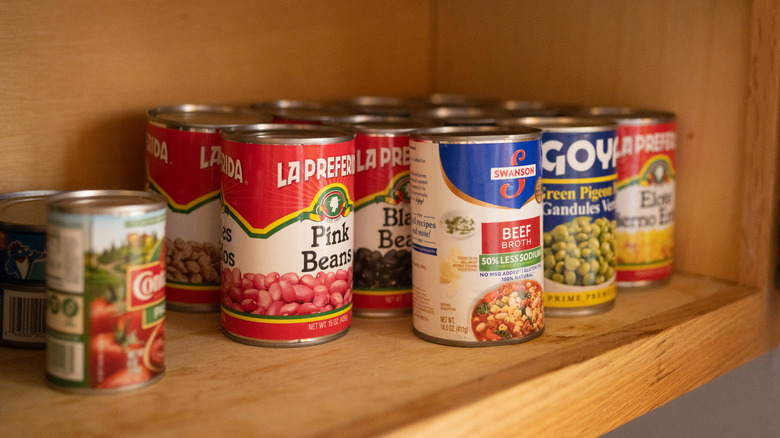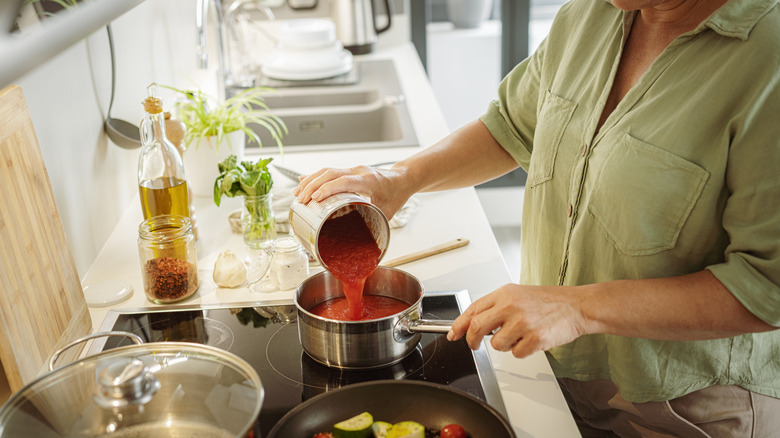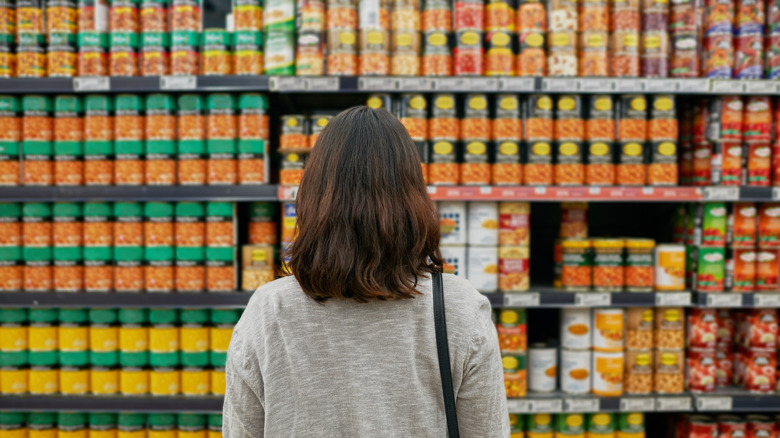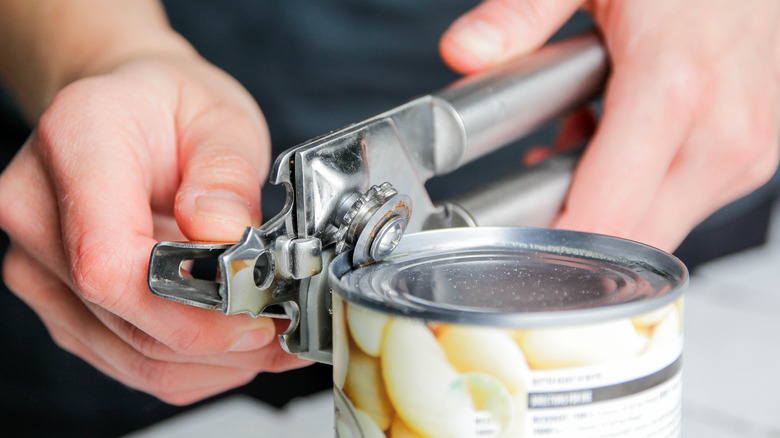Do Canned Foods Ever Really Expire?
Who among us has not rooted through the back of their pantry in search of baking soda, only to instead discover a can of diced green chiles or water chestnuts from the Bush administration? (Bush 41.) Once the initial shock subsides — "It's like Narnia back there!" — there comes the inevitable question of what to do with the years-old can. Is it still safe to eat?
The answer is straightforward: Yes, that food is still safe for human consumption. Janell Goodwin, a technical information specialist with the U.S. Department Of Agriculture's Food Safety And Inspection Service, says "best before" or "best by" dates on cans only indicate when that food will be at its highest quality. Those dates are not related to food safety.
It's completely fine to eat canned foods past their best-by date
"Due to tightly controlled procedures of commercial canning, cans that are in good condition are safe indefinitely and will never make you sick, even if the best-by date passes during home storage," Goodwin tells The Takeout.
Indefinitely? Like forever, forever ever?
"Yes, a can that is 10-plus years old that is still in good condition is technically safe to eat," Goodwin confirms.
That's because the high-heat, high-pressure process of commercial canning kills bacteria and seals the food completely, allowing no interaction between air and the can's contents.
"It's a high-heat process, so canning preserves food and prevents the growth of any bad organisms," says Sherri Rosenblat, a spokesperson for the Can Manufacturers Institute. "Canned food is forever safe, but it's a quality issue when you have a best-buy or use-by date. You should use it within a couple years for the best quality of the product."
Still, don't expect to see old cans in grocery stores
Still, you're unlikely to see past-date cans in stores. There are no guidelines that mandate when grocery stores must pull canned foods from shelves, but the vast majority do so once an item's best-buy date has passed.
"Most supermarkets will remove can products from shelves once they have hit their best-by date and those products may be donated to a local food pantry or the like," says Greg Ferrara, executive vice president of National Grocers Association. "Some stores may reduce these products for quick sale, noting they are close dated."
Because these items don't expire, customers — especially those looking for a deal — shouldn't be afraid to purchase canned foods near or even past their best-buy dates.
When you shouldn't eat old canned food
While the can of peas you unearthed in your pantry likely doesn't taste optimal a decade after its best-by date, there's no health risk in eating what's inside as long as the can itself remains in good condition. It's why many food pantries will still accept donated canned goods a few years past their stamped dates. Goodwin explains that because dating of canned food is not federally required, it's up to individual food banks or health departments to set and enforce the acceptable date range for distributing past-date cans.
As for home-canned foods, the USDA notes that DIY-canned items that don't follow best canning procedures present a higher risk for botulism. If a person opens any can — whether canned at home or commercially — and sees a milky liquid when it should be clear, or sees liquid squirt from the can when it's opened, that can should not be considered safe.
But just because a can is a few years past its best-buy date doesn't render it unsafe — its flavor just won't be at its prime.



